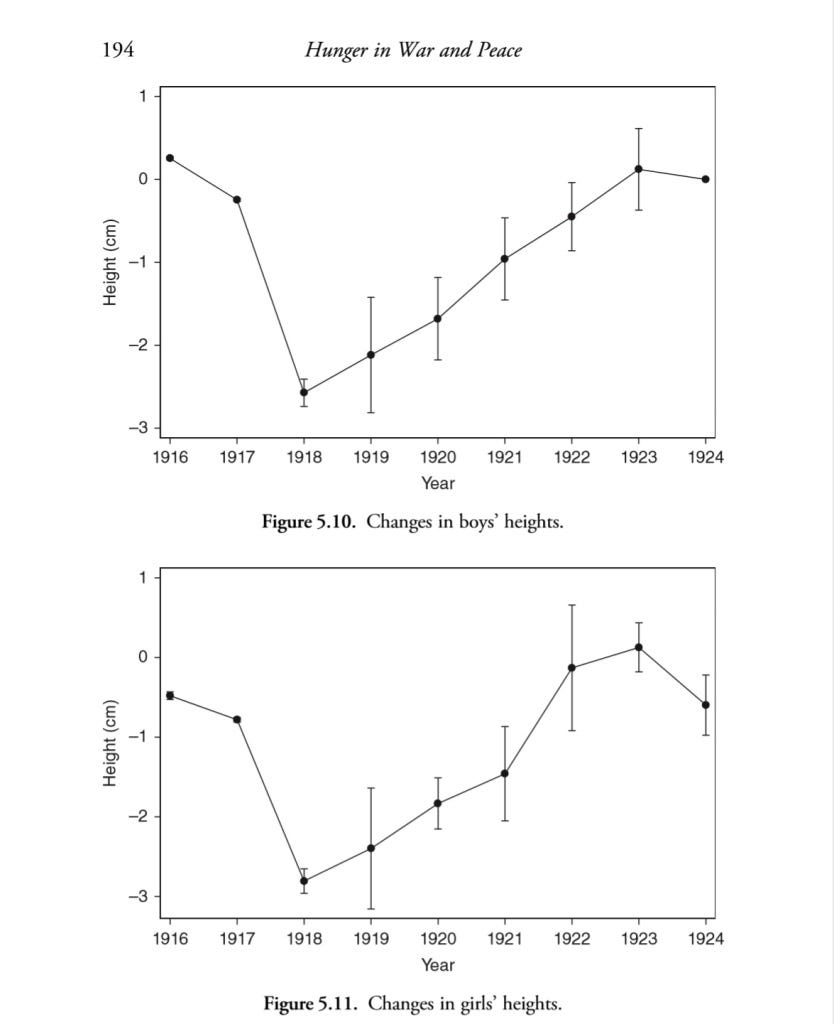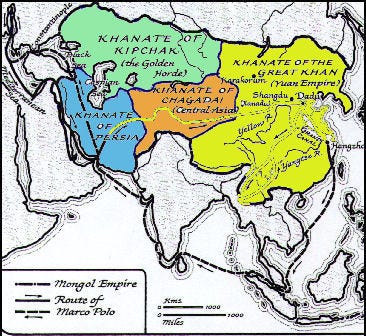The Rise of Trade and the Spread of War
In the modern world, the richest countries often have very limited natural resources (e.g., Japan). And often, resource rich countries are very poor because of protracted civil war (e.g., Congo-Kinshasa), misgovernment (e.g., Venezuela), or being stuck at the bottom of the value chain (the so-called Dutch Disease). It is still better to have abundant natural resources than to not have them. But there is a lot more to a modern economy than natural resource extraction. I think that prior to the industrial revolution it was rarer for a country blessed with rich natural resources to be poor. One extreme example of this is the division of Genghis Khan's empire among his four sons. The eldest son, Jochi, received the area corresponding to Russia and Siberia. The state created by Jochi and his descendants is known to history as the Golden Horde. The Golden Horde was the least populous of the four sections, but it was seen as desirable because it had abundant natural resources, particularly furs. If given the choice today, I would certainly rather be Khan of China or the middle east than of Siberia and the Great Steppe. But back then, they don't seem to have seen it that way.
So it seems fair to say that natural resource are less central to determining which regions are considered rich or poor in the modern world than they have been historically. And it also would seem to follow that starting a war for the purpose of stealing natural resources makes much less sense than it used to. But, though the role of natural resources in starting wars has diminished, the role of natural resources in expanding wars once they begin has increased.
In general, a pre-industrial army is not that hard to supply. You need food, clothing, wood, various widely available metals, and maybe saltpeter. There are some exceptions--I've seen speculation that the Late Bronze Age collapse was caused in part by an inability to find new sources of tin for making bronze after the tin mines in what is now Afghanistan stopped operating. But, in general and for the most part, modern nations need vastly more varied and geographically disbursed resources to fight wars. I notice this whenever I read about World War II. The German and Soviet leadership were constantly freaking out about access to chromium or phosphorus or tungsten or various other obscure elements of the periodic table. One of the major reasons Japan attacked Pearl Harbor was the Americans had subjected them to an embargo on oil exports, and they imported 80% of their oil from America. Prior to the invention of the internal combustion engine, a situation in which it made sense to the Japanese to attack the United States may just never have arisen. During World War I, Germany was cut off from deposits of guano (bird and bat droppings) from South America which it used to get fixed nitrogen for use in fertilizers and explosives. The German chemist Fritz Haber saved the day by having invented the Haber-Bosch process. But that was just luck.
It has become far more common for rich countries to import the majority of the food they consume from abroad (though there are ancient examples of this, like the role of Egypt as the breadbasket of Rome). Fossil fuel powered transportation makes it more economical to ship heavy items like food. And food imports seem to have been a crucial factor in the escalation of the world wars.
Germany's strategy in WWI was to use submarines to blockade England and starve the English into surrendering and deprive them of supplies. (I don't know why people always say "U-boats" in this context, it just means unterseebooten, i.e. submarines. I guess it is the same impulse as refusing to translate Führer into "leader".) Unrestricted submarine warfare had the side effect of leading the Germans to sink ships carrying American passengers, which expanded the war. The Germans, for their part, also suffered from difficulty importing food. It was serious enough that the effects of the Entente blockade show up in graphs of the height of German children.

These days, lots of us have WWIII on the brain. But those concerned about the long-term future have additional reasons to think about great power war. The ill effects of a world war could easily be permanent.
I want to suggest a model according to which international trade in geographically concentrated natural resources increases the risk that a small war becomes a world war:
(1) Cheap international shipping and greater knowledge of how to use rare materials creates more demand for geographically concentrated natural resources in peacetime.
(2) Therefore, modern economies rely to an ever greater extent on imports that can not be insourced in an emergency.
(3) When war breaks out, access to some essential resources is lost. In the simplest case, this is because you were buying the resources from your adversary. But it could also be because countries are less interested in trading with belligerents or you are under blockade.
(4) The need for domestically unavailable natural resources spreads war further because if the resources cannot be bought, the only other options are doing without (which may mean accepting defeat) or stealing them from other countries that you attack.
The idea that commerce reduces the likelihood of war has a distinguished and ancient pedigree. The reasoning goes that familiarity borne of trade breeds international understanding, and that it is financially disastrous to start a war with your trading partners. That all sounds right to me. But if my argument is correct the doux commerce thesis is only half of the story. Yes, war between major countries is less likely to start in the first place if there is lots of international trade. But if war does start, it is more likely to spread until it engulfs the globe, because countries will be faced with the choice between death and expanding the war in order to plunder necessary resources.
Constantly putting out small wildfires reduces the number of small wildfires in the short run. In the long run, it increases the number of large wildfires because putting out small ones allows a vast supply of tinder to build up. In the same way, financial bailouts might reduce the acute severity of the normal business cycle while gradually contributing to a future catastrophic economic meltdown. And international trade might make small wars less numerous and world war more likely.






